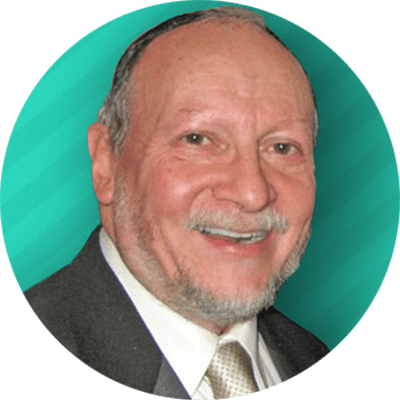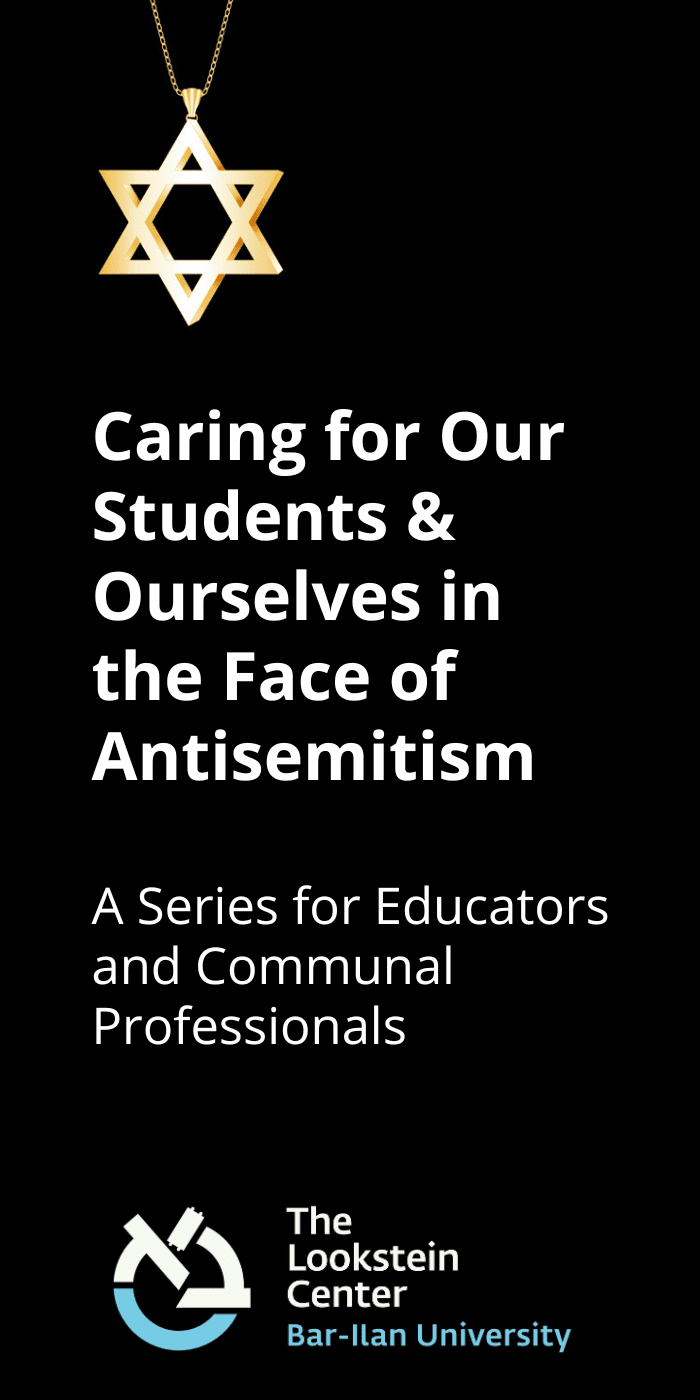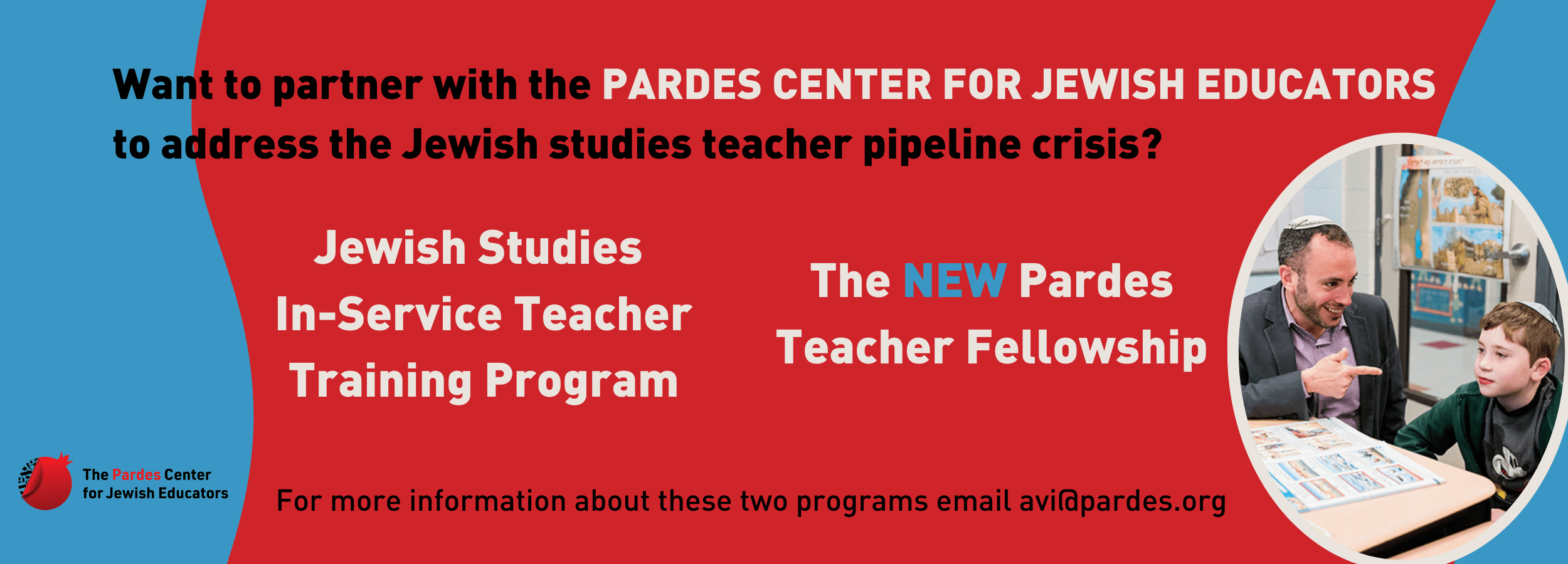Passion and Follow Up: An Interview With Ephraim Buchwald

Ephraim (Effie) Buchwald is a lifelong pioneer in the area of Jewish outreach. Rabbi Buchwald was Director of Education at Lincoln Square Synagogue (NY) for fifteen years, where he also founded the Beginner’s Service which he has been leading since 1975. He is also founder and Director of the National Jewish Outreach program, which has engaged more than a million North American Jews in Jewish life, and he was included in Newsweek’s list of the top fifty Rabbis in America.
Jewish Educational Leadership is pleased to share with you excerpts of our discussion with Ephraim Buchwald.
Jewish Educational Leadership: You’ve been involved in such a wide range of outreach activities over the span of many decades, spearheading new initiatives and changing the face of minyanim around the country. I’d like to begin this interview with how you got started on this path. What led you here?
Ephraim Buchwald: I grew up in the Bronx. My father was the only member of his family who remained Orthodox. He was one of six children from Biala, Poland and came to the U.S. at age 19. He was—this is a word that I use often—very “passionate” about his Judaism.
I attended Soloveitchik Yeshiva in Washington Heights, continued at YU’s high school, and went to YU for college. I started as a chemistry major, but I moonlighted as a Hebrew school teacher in Yonkers. A supervisor from the Board of Jewish Education got a hold of me and persuaded me to go for a Hebrew teacher’s degree at Teachers Institute (one of the Jewish studies divisions at YU in the 1960s). So, I received a regular BA and a BRE in Religious Education. After teaching Hebrew school in Yonkers, I became the Youth Director at Temple Torah in Little Neck. That was the beginning of my youth experience. I was also deeply involved in summer camping both in the U.S. and Israel.
The 60s and the 70s were the heyday of Yeshiva University’s outreach programs. I started working in their seminars as an advisor/teacher at the end of the 60s. In 1974 I was invited to join the prestigious Counterpoint team, which was going to Australia to run outreach programs, and then to the South African Counterpoint program in 1975. So, I’ve had broad experience in teaching and education, from Hebrew school to teaching fifth grade at Yeshiva Dov Revel in Queens, followed by three years at the Ramaz School where I taught in both the middle school and high school. Later, I taught Bible to undergrads at Yeshiva University as well. So, my experience with both formal and informal Jewish education has been extensive.
Many idealists start off with “utopian” dreams of becoming Jewish educators expecting to change the landscape of Jewish education. Most, unfortunately, soon give up or fall out. I think I was one of several dozen students in YU’s Teachers Institute, but only four or five of us received a Hebrew Teacher’s certificate or diploma, and I believe that only two of us actually went into the field of Jewish education.
Back then, when people would ask me about my career plans, and I would tell them that I wanted to be a Moreh, a Hebrew teacher, they would either smirk at me or warn me not to—and tell me that there would be no chance of a shiddukh for me. After all, how was I going to earn a living? What kind of salary could I expect? What would my public status be? Even today, so many Jewish educators must supplement their incomes by taking second or third jobs or moonlighting in the Kashrut field. If they would like to go away for Pesach with their families, they often wind up spending their days as mashgihim, boiling the pots in the Passover kitchens. It’s truly criminal that the wealthiest Jewish community in all of Jewish history has not been able to establish a mega-fund to subsidize Jewish education. Such a fund could have raised the status of teachers, and the community would not have lost so many thousands of Jewish children who did not receive an intensive Jewish education because their parents just couldn’t afford it.
In some ways, I feel like a relic in the Smithsonian Institute. I’m one of these very rare Jewish educators who has had mostly positive experiences in Jewish education, which motivated me to continue, even when things were challenging.
So, here’s what happened. In 1972, Rabbi Shlomo (then Steven) Riskin invited me to teach at the newly developed adult education program at Lincoln Square Synagogue (LSS). A year later I became LSS’s Educational Director. Those fifteen years as Educational Director were absolutely thrilling. LSS, at that time, was an unbelievably exciting place. It started small, but Rabbi Riskin was so popular and charismatic that we soon had over 1,500 people attending the adult education program weekly, with 50 different classes, ranging from Alef-Bet to advanced Gemara. In addition, there were many original and creative outreach and youth programs. (LSS may have had the first Sukkah-mobile, Torah Van, and outdoor Hanukah menorah!) In the late seventies, I approached Rabbi Riskin, and told him that I felt that the “tragedy” of LSS was that there is only one Lincoln Square Synagogue and that we should replicate the LSS model all over the country. He liked the idea very much, but told me that he was planning to move to Israel, which he did a few years later.
At that point, I had no fundraising experience, but I was able to put together a pretty good founding Board of Directors for the National Jewish Outreach Program. I delayed launching NJOP until 1987 when I felt that we were financially secure, so that NJOP wouldn’t have to struggle. When we finally began programming, we did things that no one had ever done, using many of the models of Lincoln Square Synagogue.
Can you tell us about NJOP’s start? Why was it such a success?
NJOP’s first project was the Hebrew Reading Crash Course (HRCC), which we initially experimented with at Lincoln Square Synagogue but then formalized and took nationwide in 1988. The course is amazing— a student can learn the entire Hebrew alphabet in one sitting and be reading after five hour-and-a-half lessons. We started with this course, because Hebrew reading was neutral and non-threatening. Shabbat might have scared people away, it might have been too religious, but Hebrew was just cultural.
Here’s the amazing thing. For many of those who took the course, Hebrew reading became the gateway to greater Jewish involvement. Without the ability to read, many Jews feel disenfranchised from shul and, hence, from much of Jewish life. They don’t know when to sit or stand, they can’t follow anything that is happening. All these sophisticated professionals, many with advanced degrees—lawyers, successful businesspeople, university professors, feel stupid in shul, and feel that the door is closed to them. Suddenly the ability to read Hebrew makes it possible for them, (almost magically!), to step across that threshold. Reading Hebrew has become a gateway, one which many people didn’t even consciously realize that they needed. At this point, the great contributions of NJOP’s Hebrew reading specialist, Florence Wiener, who developed the mnemonic Aleph-Bet Chart and reading program, must be acknowledged.
With the help of the talented copywriter, Jesse Cogan, NJOP developed a unique, and, at that time, revolutionary, advertising campaign—jingles on the radio, toll-free numbers, and billboards on buses and subways with catchy slogans: “This Rosh Hashana, Pray in the Original.” “This Passover, Experience the Exodus from Right to Left.” “This Chanukah, Give Yourself the Gift of Hebrew.” “Being Jewish is Just the Beginning.” No one had ever done anything like that before!
We hoped that about eight hundred people would sign up for the Hebrew Reading Crash Course. Instead, five thousand signed up, from all across North America. We knew then that we were definitely onto something. The Hebrew reading Crash Course is still the most effective program that NJOP offers, because the key of Hebrew reading opens the door to self-fulfillment and brings the students into the synagogue. (That’s why the rabbis love the program!) When the HRCC “graduates” open the prayer books, and they can actually read Hebrew and sing the Hebrew songs, we see the actual transformations take place before our eyes. And that, in my humble opinion, is the most effective tool that we have in our repertoire to bring people into Jewish life.
After our initial success, we trained hundreds of volunteers to teach our courses, in cities around the country. In fact, NJOP now has over seven thousand volunteers, lay people, who serve as teachers and would-be ambassadors, who have changed the lives of many thousands and have greatly enhanced their own Jewish lives as well.
Where did you go from there?
Soon after launching these programs, we quickly recognized something that is important to all educators. Every program needs follow-up. In fact, follow up needs to be built into the actual program. That is why NJOP strongly encourages all our volunteers to follow up with their Hebrew students—by inviting them to a Shabbat meal or by sitting next to them in shul. Some of the volunteer teachers have been inspired, and are brave enough, to start their own Beginners Services to help their former and current students continue to grow.
I still lead the Beginners Service at Lincoln Square Synagogue that started forty-seven years ago. I’m still trying to become a real rabbi, but what can I do? I’m still a Beginners rabbi. Hopefully, one of these days….
The Hebrew Reading Crash Course has proven to be one of the most effective instruments to bring marginal or unaffiliated Jews back to shul. We hope to teach another 250,000 Jews to read Hebrew in the future years.
So, back in 1988, five thousand(!) Jews responded to the HRCC marketing. They came to the Hebrew Crash Course, and they loved it. We knew that we needed to follow up. We responded by offering NJOP’s Crash Course in Basic Judaism (CCBJ)–“Five Lessons You’ll Never Forget.” The Basic Judaism Crash Course was obviously much more explicitly religious—Belief in God, Prayer, Shabbat, Jewish Observance, and Sexuality. Of the five thousand who initially took the Hebrew reading course, three thousand registered for Basic Judaism. We were amazed and thrilled!
It was only after that unexpected success, that NJOP decided to try its Shabbat program. It was modeled after the “Turn Friday Night Into Shabbat” program, launched in 1980 at Lincoln Square Synagogue, with the very catchy name and marketing program created by Jesse Cogan. Later, NJOP expanded the program nationwide into “Shabbat Across America.” More than a million people have participated in those Shabbat experiences! That’s an incredible number, of which we are very proud, especially because we were able to convince hundreds of non-Orthodox synagogues to offer a traditional Shabbat to their congregants. Unfortunately, over the past few years, during COVID, everything was limited, so we encouraged in-home Shabbat experiences and built extensive online resources for people to prepare and use at their own Shabbat meals in their homes.
Again, it’s the follow-up that really makes a difference. A Shabbat meal is a one-time, rather ephemeral, experience. Even a most successful Shabbat program that attracts several hundred people to a Friday night dinner, but does not have follow-up, will see much of the impact rapidly dissipate. Obviously, there will be positive memories of a nice experience—which I do not minimize. But, for most people, it’s not what’s going to make a difference. However, if these same Shabbat participants come back to take a Hebrew Reading Crash Course—that’s what can really make an impact on people’s spiritual lives.
After these major nationwide (indeed, worldwide) popular programs, NJOP developed more learning opportunities. A Crash Course in Jewish History, Hebrew Writing, Parents are Teachers, a guide for running a Beginners Services, Passover, Sukkot, and Chanukah Across America, all of them, of course, with built in follow-up, hoping to create even more positive Jewish experiences. NJOP also became a major player in Jewish social media with “Jewish Treats” and “Jewish Tweets.”
Even though there are more in-person programs beginning to happen now, because of COVID, over the last few years NJOP has had to offer many of its programs and classes on Zoom. In response to the challenge, NJOP rushed to increase its online offerings and social media programs, including extensive resources for the Jewish holidays.
By anyone’s measure, you’ve been very, very successful over the years in touching many thousands of people and bringing them into living more Jewish lives. I understand that a big part of that you attribute to knowledge, comfort, and access—the Hebrew Crash Course made it easier for people to feel comfortable in authentic Jewish settings. But is that enough to make a meaningful difference in people’s lives?
The secret is “passion.” All our teachers know it, and I imagine that many of our students know it as well. NJOP is not interested in converting people to a particular brand of Jewish practice, but we definitely want to inspire Jews to grow Jewishly. We hope to introduce more passion into Jewish practice and Jewish life, to make certain that every Jew has the basic knowledge and tools to make an informed decision about what kind of Jewish life they want to live. We want to expose every Jew to passionate and joyous Jewish experiences. Yes, I undoubtedly learned that from my father.
In the mid-to-late 1960s, Dr. Abe Stern, of Yeshiva University, developed a program that was called YU seminars—retreats lasting three, four, or five days filled with learning, music, dancing and joy, and open discussions about Torah and Judaism with select young advisors. They were designed for students from non-observant backgrounds—I brought my Hebrew school and youth group participants to these programs. The transformations were unbelievable. The intense Jewish experience was so powerful—they had never experienced anything like it before. When I started to teach at the Ramaz School, I wondered why we couldn’t offer similar exciting programs to day school students. So, in 1972, we founded “Yeshiva Seminars,” for Yeshiva High School students, staffed with young, dynamic rabbis. Those yeshiva seminars ran for many years and had a huge impact on the lives of the students—who had attended day schools their entire lives, and were quite jaded. At the Counterpoint program in Australia and South Africa, we did the same thing in the well-known day schools. It not only changed the students; it had a major impact on the communities as a whole. It was incredible.
The secret to the success? Again, passion, and many positive, joyous, Jewish experiences.
I’m sure that you are aware of the challenge in finding good Jewish studies teachers, and even many of the good ones get worn down over the years.
Rabbi Shlomo Riskin used to say, “When you pay peanuts, you get monkeys.” In my day, it was much worse than it is today. There was no prestige at all being a Jewish teacher. And, unfortunately, we need to bear in mind that regardless of all the positive experiences students might have during their many years of education, all it takes is one bad teacher who can turn a student off Judaism forever. While the problem has been around for a long time, and though the teachers’ situations are a little better today, we still have a long way to go. There is so much wealth in the Jewish community, and, as I noted previously, I simply cannot fathom that the American Jewish leadership never created a Jewish education mega-fund to enable teachers to be paid respectable wages, so that they can hold their heads high and enable really good people to make Jewish education a career calling.
Our young people need inspiring role models. If the teachers can fill that role, that’s great. And if not, we need to invite inspirational models into the schools as guest presenters. It can be a diplomat from Israel, a wounded Israeli soldier, someone who escaped from the Soviet Union, or someone who helped Soviet Jews resettle, someone who dedicates his/her life to doing hesed, a disabled child—the list goes on. They have riveting stories that students remember for many years. Those stories help generate passion.
I know that many programs emphasize having a good time. “Did you have a good time?” Some educators, in their efforts to win over the hearts and minds of the young people claim that Shabbat, or Torah study will give them “pleasure.” I don’t think that “pleasure” is the goal of Judaism. “Fulfillment” is. You don’t get pleasure when shopping for the elderly, or carrying their heavy packages, but you do leave with a sense of fulfillment. That sense of fulfillment touches the soul. Pleasure is ephemeral; fulfillment has a lasting impact.
That’s what NJOP hopes to do at our Shabbat Across America programs. We feature people who have made incredible strides in their “Jewish journeys” and have made significant transformations in their Jewish lives. Can you imagine a captain in the NYC police force, a dancer in the Rockettes, an FBI agent, an internationally-acclaimed Pulitzer Prize winning composer, an Emmy Award winning TV writer, the owner of the largest chain of furniture stores on the East Coast, who were religiously inspired, speaking to a group of young people about their inspiring journeys? Can you imagine the passionate Jewish experience they convey to all?
So, we need passionate teachers, passionate role models, people who really believe in what they say, and what they do, and don’t hide it. That passion becomes contagious, and others catch it. Let’s all help spread it!



Ephraim (Effie) Buchwald is a lifelong pioneer in the area of Jewish outreach. Rabbi Buchwald was Director of Education at Lincoln Square Synagogue (NY) for fifteen years, where he also founded the Beginner’s Service which he has been leading since 1975. He is also founder and Director of the National Jewish Outreach program, which has engaged more than a million North American Jews in Jewish life, and he was included in Newsweek’s list of the top fifty Rabbis in America.
Reach 10,000 Jewish educational professionals. Advertise in the upcoming issue of Jewish Educational Leadership.





